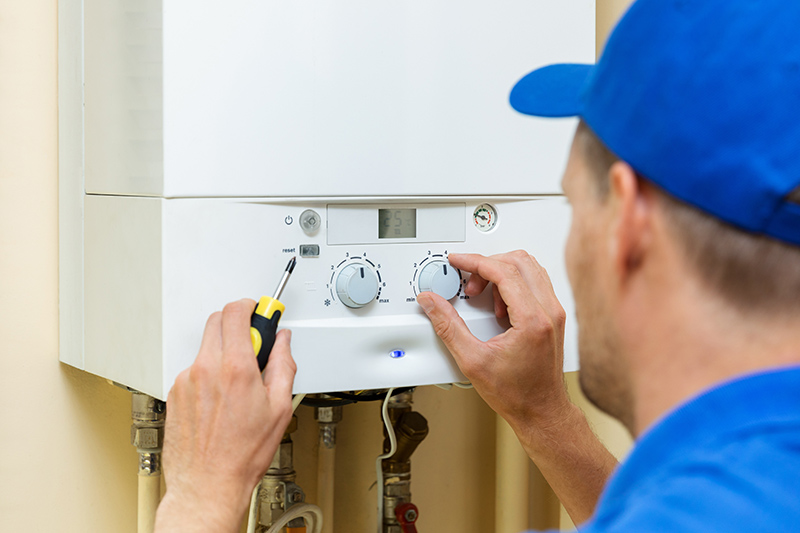Tankless water heaters do not store and heat water continually as a tank heater would. Instead, they work to heat the water that flows through the unit, as and when you need it.
You don’t need to wait for the water to heat up before you use it; you can access it on-demand, preventing the heat loss that can lead to high energy builds. This is primarily thanks to the heat exchanger that immediately transfers heating from electric coils or gas burners to the water, which happens as soon as you turn your hot water taps on.
The Trend of Tankless Water Heaters
One of the greatest comforts and conveniences of modern living is our ability to get hot water on demand as and when we need it. Water heaters have been a key part of the home for as long as they have been around, and they’re being made even more convenient by a new trend. Here, we’re going to look more closely at tankless water heaters that are becoming increasingly popular in homes, why they’re becoming so popular, and the advantages they have to offer in your home.
Safety Impact
As mentioned, heating up water instantly, rather than having to store and keep a tank full of hot water can help you save on your energy bills. However, it can also be a lot safer. The water heater tanks can become overheated or experience too much pressure, which can lead to ruptures that can be seriously dangerous and do a lot of damage to the home. Tankless water heaters are much smaller and safer.
Environmental Impact
Another benefit of the fact that it uses less energy is, of course, the reduced impact that it will have on the environment. Your overall energy usage is going to be a lot slower, and you will see that when comparing your energy bills over the year.
Durability and Maintenance
Able to last over 20 years, which is roughly five years longer than the maximum lifespan of the average tank heater, tankless water heaters have an impressive lifespan. Furthermore, it’s often cheaper and easier to get replacement parts, meaning it can be maintained and kept in the best shape for longer.
Of course, as with any of the alternatives, the tankless water heater may occasionally malfunction due to regular wear and tear. As such, it’s important to know how to find good water heater repair to keep yours in the best condition possible.
Pros and Cons
It wouldn’t be honest to imply that tankless water heaters have no disadvantages. For one, while they can lead to cost savings that make up for it over time, they are initially more expensive to fit.
Furthermore, they can reduce the flow rate of the water if you’re using large amounts at once, as they’re not able to provide as much hot water in as short a period of time. This is typically only a problem for larger homes that need to supply a lot of hot water, but the reduced flow rate is worth paying attention to, all the same.
The tankless water heater is becoming a more common fixture in the average household thanks to a variety of reasons. As such, the next time you consider changing your water heating, consider the tankless water heater.


